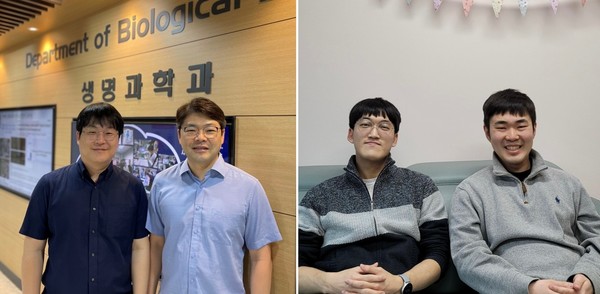The Korea Advanced Institute of Science and Technology (KAIST) said Monday that its research team has developed a new type of protein treatment to reduce the side effects, including severe inflammation, from existing Alzheimer's treatments.

Alzheimer's disease is the leading cause of senile dementia accompanied by amnesia and cognitive impairment. It is believed to be caused by synaptic damage and cytotoxicity by beta-amyloid aggregates accumulated in the brain.
Recently, the U.S. Food and Drug Administration approved Aduhelm, an antibody-based treatment targeting beta-amyloid, as the source treatment for Alzheimer's disease. Still, controversy persists over its treatment effect and side effects .
The biggest side effects for patients prescribed antibody-based treatments, such as Aduhelm, are cerebral edema (ARIA-E) and cerebral microvascular hemorrhage (ARIA-H). These side effects are closely related to brain inflammation as antibody-based treatments inevitably cause inflammatory reactions through Fc receptors, essential to remove beta-amyloid aggregates.
The KAIST research team, led by Professors Kim Chan-hyuk and Chung Won-seok, solved this problem by artificially manipulating Gas6 to produce a fusion protein (anti-Abeta-Gas6) targeting beta-amyloid.
In an Alzheimer's disease mouse model, it significantly reduced the amount of beta-amyloid accumulated in the brain by simultaneously using microglial cells and astrocytes. The study also revealed that the Gas6 fusion protein could dramatically suppress excessive synaptic removal by microglia cells, exacerbated by antibody treatments.
Furthermore, the model confirmed the successful recovery of damaged cognition and memory to a higher level than antibody treatments while reducing cerebral microvascular bleeding in Alzheimer's disease mice models injected with the Gas6 fusion protein.
This fusion protein type treatment is the first to apply this new mechanism of action. It can be applied to other degenerative brain and autoimmune diseases, according to the researchers.
"The reason so many antibody-based therapies have not been successful is that the beta-amyloid that builds up in brain tissues and blood vessels has not been effectively cleaned,” the researchers said, "With the Gas6 fusion protein, beta-amyloid is cleaned without an inflammatory response, resulting in low side effects, and improved cognitive enhancements."
The study was published in the online edition of Nature Medicine on Aug. 4.

